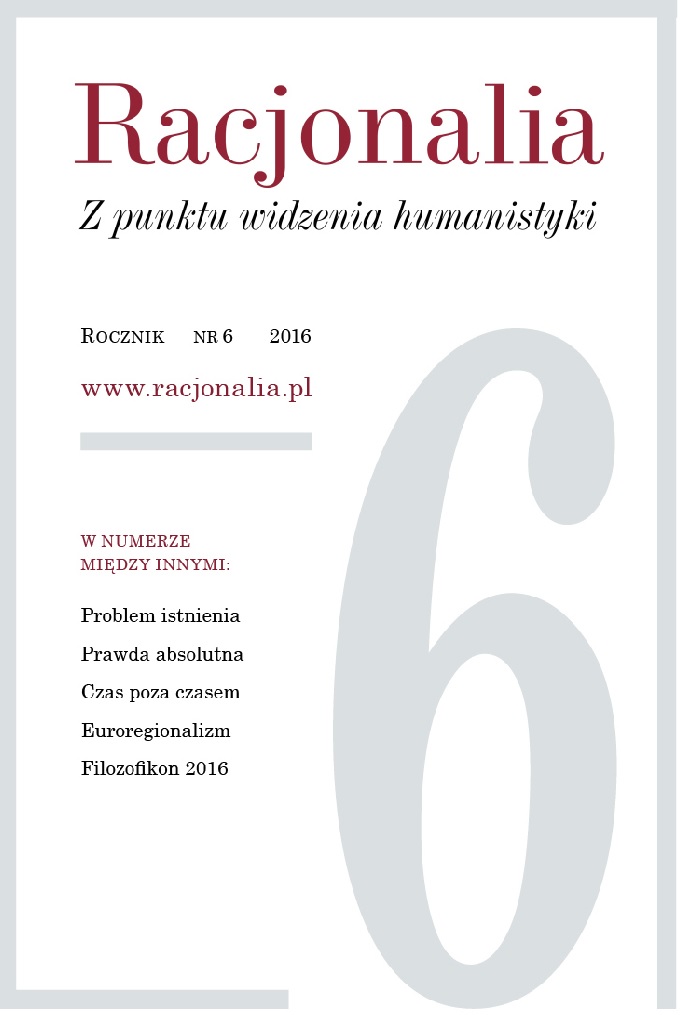Problem istnienia w filozofii greckiej (ujęcie Charlesa H. Kahna)
QUESTION OF EXISTENCE IN GREEK PHILOSOPHY – CHARLES H. KAHN’S APPROACH
Author(s): Damian KokoćSubject(s): History of Philosophy, Philosophical Traditions
Published by: Wydawnictwo Naukowe Uniwersytetu Papieskiego Jana Pawła II w Krakowie
Keywords: essence; existence; being; Greek philosophy; Kahn
Summary/Abstract: Scholars agree that question of existence was ignored by the ancient Greeks. The main cause of such a state was the way that the ancients perceived the world. We can found this imgage not only in their mythology, but also in their philosophy. Jacek Wojtysiak claims, for antic Hellenes the world was relatively contingent, which means that for them anything that was, was not something necessary, because the whole reality was constantly changing. Therefore, the universe and its laws could receive different form that they have now. But the ancients didn’t perceived reality as radically contingent, which means that they received the universe as eternal and it was impossible that it would not exist. This is the way Greeks concentrated on the question of nature of the reality, what was it Basic substance, and what decide that the universe was what it was. Charles H. Kahn’s considerations are important in the study of the ancient conception of being and existence. Basing on the analysis of language of ancient Greeks, he answers the question why they didn’t considered the question of existence. Kahn claims that for ancients the main issue in Greek’s theory of being was not the question of the existence, but truthfulness meaning of the verb einai. This linguistic investigations are useful because, as he claims, the way how we are perceiving the reality depends on language we use. It also applied to ontological consideration.
Journal: Racjonalia. Z punktu widzenia humanistyki
- Issue Year: 2016
- Issue No: 6
- Page Range: 7-23
- Page Count: 17
- Language: Polish

